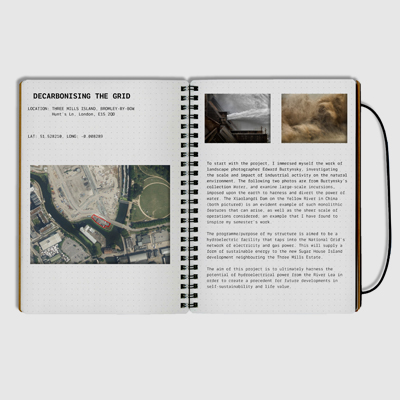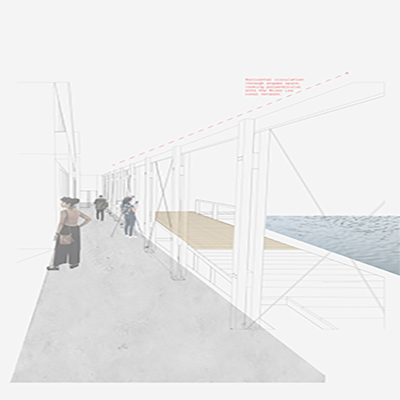DS 2.1
Tutors
Corinna Dean
c.dean@westminster.ac.ukDr Corinna Dean, established the Archive for Rural Contemporary Architecture, ARCA , which explores living landscapes.ARCA will host a workshop with Drawing Matter this summer at Shatwell Farm, which will construct an interpretation of James Gowanu2019s shed. She is a member of the Expanded Territories Group, UoW, and her most recent paper will trace the vital materialism of the former dynamite factory on the Hoo Peninsula.
Read More...Raluca Cirstoc
r.cirstoc@westminster.ac.ukRaluca is an Architect with expertise, in both practice and research, on ecologies of industrial landscapes and urban development set around complex infrastructure. She is currently leading the delivery of a meanwhile masterplan for a major regeneration site in the Lee Valley with 5th Studio.
Read More...Guest Critics
Marcus Lee Nordic architects Greg Lomas Foster Lomas Maria-Chiara Piccinelli Pim studio Duarte Santo Cornell University Matteo Sarno 5th Studio Mike Wakeford Canal + River Trust
Duarte Santo
Thanks
Beth Cullen, School of Speculation
Read More...The studio builds on Bruno Latour’s (1993) statement, ‘Urban river systems are tangible sites for hybridity between nature and society’. To expand this thinking the two design projects examined how the River Lea and urban water ways are part of a crucial ecology which is interconnected, with land, society culture and ecology. In order to understand the ongoing reimagining of the River Lea and its complexities, the studio addressed the site as a series of interconnected agents, beyond the singular building. We applied this approach to the first semester’s brief, a Field Station for an Urban Ecologist in the Walthamstow Wetlands, which sees the coexistence of an operating collection of reservoirs, with a nature reserve and wetlands. Through a series of lectures by external practices including the Canal + Rivers Trust (CRT) we began to understand how the river and its history has developed as a set of engineered navigational channels with a diversity of edge conditions, varying soil conditions, basins of water, man-made manipulation and recent intensification of building, leading to pollution and pressure on natural ecologies. For the second semester, our client the Canal + Rivers Trust encouraged thinking and brief making to respond to the question, How do we think imaginatively and ecologically about how we live together with urban waterways? Responses ranged from an ethanol harvesting factory to produce fuel for the local house boat dwellers, a boat repair hub and governance
Read More...














